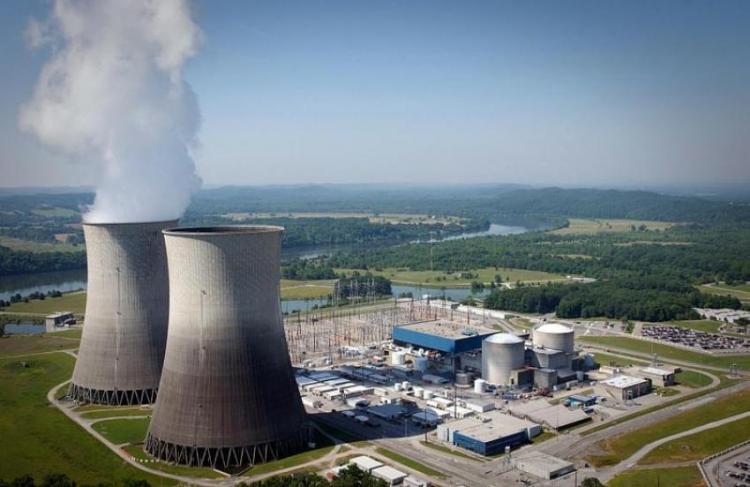Germany – North-Press Agency
Farhad Hami
In response to US pressure on Iran, Iranian President Hassan Rohani has warned European countries signed the nuclear deal about the end of Iran’s 60-day deadline, stressing that if the signatory countries fail to respond to Tehran’s demands during the bound time, it will increase the level of uranium enrichment to more than %3.67, which is the limit named by the nuclear deal and therefore activating “Arak” reactor.
The declarations raised the level of concern in France, Germany and the United Kingdom where they considered that Tehran’s increase of uranium enrichment in nuclear reactors would be a knockout to the deal which was signed in 2015, while Iranian Atomic Energy Organization spokesman Bahroz Kamalwandi stressed that Iran will increase its production in uranium enrichment by nearly four times, and this production index will exceed the extent that Tehran agreed with the signatory countries in the nuclear deal.
Experts and political figures in the European countries have come to understand the background of Iran’s recent statements, some have argued cautiously that Iran continues to enrich uranium under this declaration, albeit slowly and gradually, it might soon start possessing nuclear weapons, but it would eventually improve Tehran’s ability in developing nuclear weapons, and others attributed these statements to the lack of Iranian options which works on increasing uranium enrichment, as this option is the only point available for Tehran, and it should be using this point to exploit the of pressure of Trump administration.
According to analysts, Iran’s started abandoning its “strategic patience” diplomacy to enter the stage of gradual escalation, If Trump administration tightens its grip on Tehran by imposing sanctions on Iran’s vital sectors, Tehran, in turn, threatens to withdraw from the nuclear deal, and both are seeking for negotiations that meet their conditions, but the European countries remain in an embarrassing position amidst a tug of war between the two parties, especially if the United States tried to impose sanctions on Tehran this time through the United Nations under the pretext of Iran’s declared efforts about the production of nuclear weapons, in this case, there will be an inevitable end waiting for the fate of the nuclear deal.
It’s likely that this step will confuse the accounts of France, Germany, and Britain to obstruct making a joint and unified speech, especially that both Russia and China may support Tehran against the US decision, but this doesn’t prevent saying that the Iranian nuclear crisis has returned to the scene in a manner that worries the international community again, as Iran will try to move back and produce nuclear weapons at a time that Trump administration will exert considerable pressure on Tehran in order to force it to return to the negotiating table.
However, according to official statements of the European countries signed with Iran, the diplomacy of those countries is still stuck with a glimmer of hope in order to preserve the deal, there is a time, as European countries say, that Tehran will refrain from reducing the stockpile of uranium. In turn, there’s plenty of time for European countries to fulfill its terms towards Iran, according to Hassan Rohani.
While the European countries are trying to find a financial and commercial mechanism through the so-called “NSTEX” to circumvent the economic sanctions imposed on Iran, although Iranian officials were frustrated by the delay of drawing this mechanism, but this mechanism to be drawn by France, Britain and Germany in order to find a right commercial exit, may be limited according to Tehran, and it could face US sanctions if its business expanded to include sectors that provide a space to the Iranian economy.
According to experts, the main obstacle facing the European countries to draw this trade and financial mechanism in order to maintain the economic relations with Tehran, America’s dominance on the international financial sector, which interferes with the mechanism of European and multinational companies that may be financially stumbled if they take this step.
Experts say that the proposed European mechanism is a political initiative that doesn’t have the executive and effective power because of the fear of European companies of the risk, which will be against the will of Washington, and thus they may lose their influence in the US financial markets.
European countries fear of taking a firm stand about this issue, especially since the German diplomacy that visited Tehran didn’t get the desired results. If the European countries try to take a unilateral stand against Trump’s strategy about Tehran, the European economy is expected to be revenged by the US Administration. Therefore, some opinions say that the European countries will not support Tehran against Trump, but they will look for their own interests, which it doesn’t deserve a dangerous adventure in light of the Iranian economy which is classified as medium size, subject to bureaucracy and unlike European standards, it doesn’t have the flexibility required.
Analysts agree that Iran’s recent threats to increase uranium enrichment will certainly anger Trump’s administration, but the United States, as Trump says, doesn’t want a war, while recent incidents in both the Persian and Oman Gulfs are escalating the severity of skirmishes between the two sides, and while the European countries are unable to find a diplomatic solution that reduce the severity of tensions, with all these factors combined, it’s suggested that the management of escalation will become more complicated for all parties involved in the next phase.

